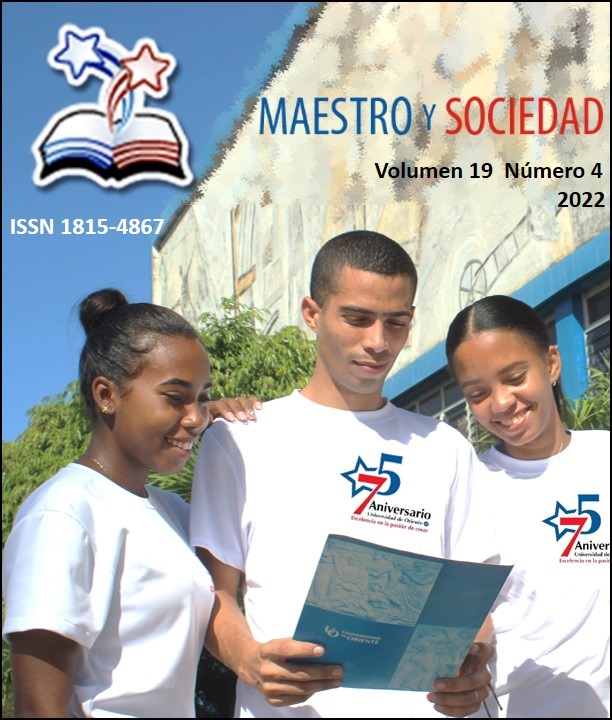Some considerations about the intelligent reading of test in English for university students
Some considerations about the intelligent reading of test in English for university students
Keywords:
intelligent reading, sociocognitive strategies, texts in EnglishAbstract
Reading written material in English is an elementary condition for the construction and development of knowledge in the academic field. However, the significant advance of this ability has had its setbacks due to the fact that the student does not apply metacognitive strategies in an adequate and contextualized manner. In addition, it does not make critical and reflective interpretations of its social reality, which results in a weakened or decontextualized cognitive and social construction of knowledge. Reading is interpreted as a sociocognitive activity for which it is necessary to analyze cognitive theories about prior knowledge schemes and also social theories referring to the importance of dialogue, interaction and the negotiation of meanings when interacting. with the text, as well as other readers who share the activity of interpretation and understanding of said text. In the present work, we reflect on sociocognitive strategies for approaching reading in English in basic training courses for university students.
References
Benítez-Burraco, A. (2019). Bases moleculares de la dislexia. Revista de Neurología, 45(8), 491-502.
Blumstein, S. E. (2021). Deficits of speech production and speech perception in aphasia. En F. Boller, & J. Grafman (eds), Handbook of Neuropsychology (pp. 95-13). Amsterdam: Elsevier.
Díaz-Barriga, F. y Hernández, G. (2022). Estrategias docentes para un Aprendizaje Significativo: Una interpretación constructivista. McGraw-Hill Inc.
Dronkers, N. F., Pinker, S., & Damasio, A. (2014). Lenguaje y afasias. En E.R. Kandel, (Ed.), Principios de neurociencia (pp. 1169-85). Mc Graw-Hill.
Fernández, P. (2009). Conocimiento previo, esquemas de género y comprensión lectora en inglés. Universidad de Murcia.
Indefrey, P., & Levelt, W. (2019). The neural correlates of language production. En M.S. Gazzaniga, (ed.). The New Cognitive Neurosciences (pp. 845-65). MIT Press.
Martin, N., & Saffran, E.M. (2012). The relationship of input and output phonological processing: an evaluation of models and evidence to support them. Aphasiology, 16, 107-50.
Martin, R. (2010). Sentence comprehension. En B. Rapp (ed), The handbook of cognitive neuropsychology (pp. 349-73). Psychology Press.
Martin, R.C. (2003). Language processing: functional organization and neuroanatomical basis. Annual Review of Psychology, 54, 55-9.
Soler, M. (2003). Lectura dialógica. La comunidad como entorno alfabetizador". En: A. Teberosky y M. Soler (Comps.), Contextos de alfabetización inicial (pp. 47-63). ICE/ Horsori.
Toledo, A. (2021). Relación entre el nivel de compresión de lectura y uso de estrategias de comprensión en estudiantes de Idiomas Modernos. Universidad Nacional Experimental Simón Rodríguez.
Valls, R., Soler, M. y Flecha, R. (2018). Lectura dialógica: interacción es que mejoran y aceleran la lectura. Revista Iberoamericana de Educación, (46), 71-87.
Published
How to Cite
Issue
Section
License
Copyright (c) 2022 Marisol Yanez-García, María Victoria Heredia-Yanez, Antonia Monserrate Laaz-Velez, Jean Wilfredo Alcívar-Alcívar

This work is licensed under a Creative Commons Attribution-NonCommercial-NoDerivatives 4.0 International License.
This journal provides immediate open access to its content, based on the principle that offering the public free access to research helps a greater global exchange of knowledge. Each author is responsible for the content of each of their articles.



























 Universidad de Oriente
Universidad de Oriente 